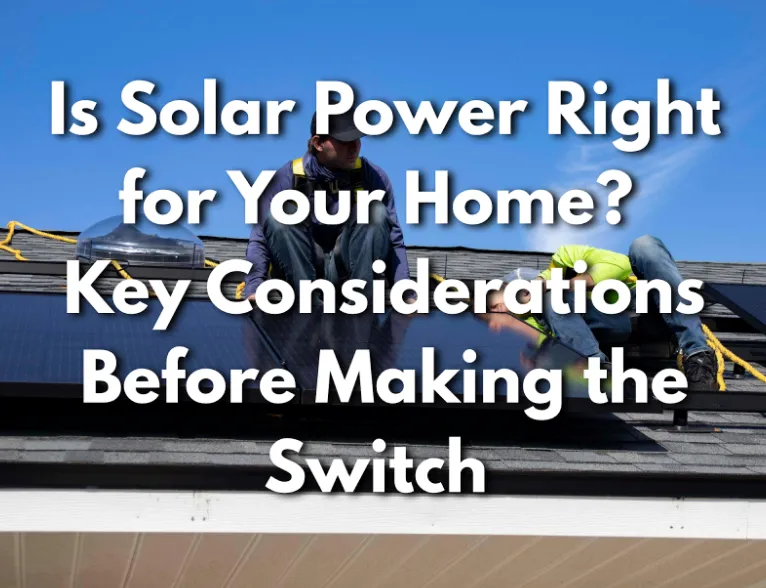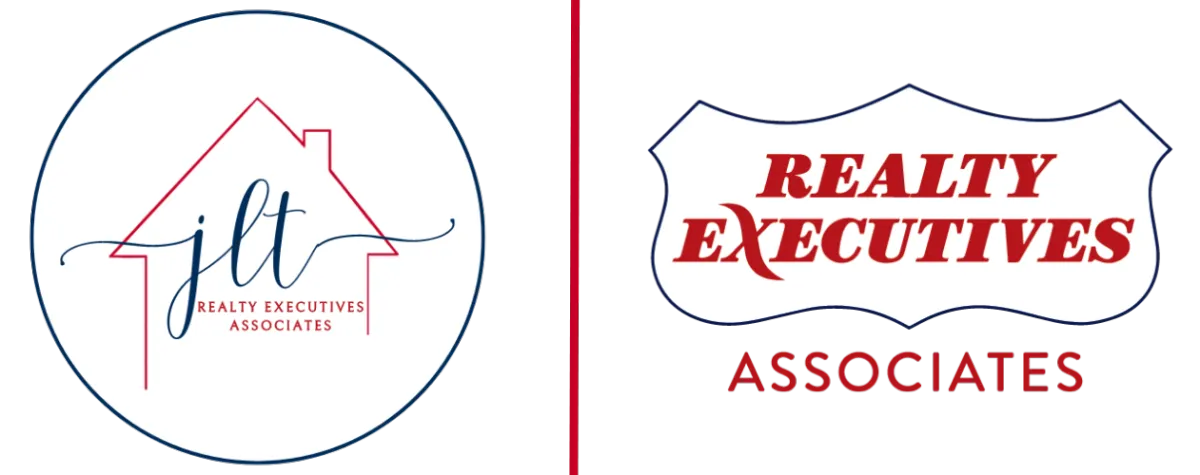How Much Is Your Home Worth?

Is Solar Power Right for Your Home? Key Considerations Before Making the Switch
As more homeowners look for eco-friendly alternatives to reduce energy costs, solar power has emerged as a top choice. But is solar energy right for your home? Whether you’re interested in buying, leasing, or entering a power purchase agreement (PPA), there are important factors to consider before making this green investment.
In this post, we’ll break down what you need to know about solar power, how it can benefit you, and the steps involved in choosing a system that works for your home and lifestyle.
What Are Your Options?
Before committing to solar power, it’s important to understand the different options available:
Buying a Solar System - Owning your solar panels allows you to reap long-term benefits such as tax credits and renewable energy certificates (RECs). While upfront costs can be high, this option can save you money in the long run.
Leasing a System - If you prefer not to pay upfront for a system, leasing might be the way to go. You pay a fixed monthly fee, and the company maintains the system, but you miss out on incentives like tax credits.
Power Purchase Agreements (PPA) - With a PPA, you buy the electricity your system produces at a set rate, usually lower than what your utility company charges. However, like leasing, you won’t own the system, so you miss out on certain benefits.
Is Solar Power Right for Your Home?
Making the switch to solar isn’t for everyone. Here are a few questions to ask yourself before taking the plunge:
1. Are You Likely to Save Money on Your Utility Bills? Look at your utility bills from the last year. Solar systems reduce your dependence on the grid, but you'll still need to pay for the utility’s fixed charges, such as delivery fees. Compare what you'd pay with solar vs. without it.
2. How Will Your Utility Company Respond to Solar Power? Check with your utility company about how they handle solar. Some utilities offer net metering, which credits you for any excess power your system sends back to the grid, further increasing your savings.
3. How Long Do You Plan to Stay in Your Home? Solar systems are designed to last 20+ years, but if you plan to move soon, consider how the system might impact your ability to sell. Buying solar might add value to your home, but leasing or PPAs could complicate matters.
4. Is HOA Approval Required? If you live in a neighborhood with a homeowners association (HOA), make sure to check their rules about installing solar panels. Some HOAs have restrictions or require approval before you can install.
Choosing the Right Solar System and Installer
The ideal solar system depends on your home’s energy needs, roof condition, and local climate. Consider these factors:
Roof Size & Orientation: How much sunlight does your roof receive? Does it face the right direction?
Energy Consumption: Estimate how much energy you use annually. This will guide the system size you'll need.
Location & Climate: Areas with more sunlight naturally benefit more from solar, but even in less sunny areas, you can still save on energy.
Finding a Solar Installer
It’s crucial to choose a reputable installer. Here's how:
Get Multiple Quotes: Ask for detailed proposals that include installation costs, system performance, and warranties.
Do Your Research: Read online reviews and verify the company’s credentials with your local consumer protection agency.
Solar Financing: What Are Your Options?
If you decide to buy, financing your solar system can be done through several methods:
Federal & State Incentives: You might qualify for tax credits or rebates. These can significantly reduce the cost of your system.
Loans & PACE Financing: Some homeowners use home equity loans or Property Assessed Clean Energy (PACE) financing to help pay for the system upfront.
Consider these financing options carefully—each comes with different terms, fees, and conditions that can affect your future financial flexibility.
Leases and PPAs: The Pros and Cons
While buying solar gives you full control, leasing or signing a PPA might offer a more budget-friendly option without the upfront cost. However, these agreements come with long-term contracts and you won’t benefit from tax credits or incentives.
Before signing a lease or PPA, compare the following:
Total Costs: What will you pay over the life of the agreement?
Energy Production: Does the system produce enough energy to meet your needs?
Warranties & Maintenance: Who’s responsible for repairs and maintenance?
Wrapping It Up: Is Solar Worth It for You?
Solar energy can be an excellent investment, but it’s important to weigh the costs, benefits, and long-term commitments. Consider your home’s energy usage, your budget, and your plans for the future before making a decision.
With proper research and planning, you can make the switch to solar in a way that works for your home and your wallet.
Disclaimer: This information is for general knowledge and informational purposes only and does not constitute financial, tax, or legal advice. We are not lawyers, financial advisors, accountants, loan officers, or mortgage brokers. Please consult with a qualified professional to understand your specific needs.





